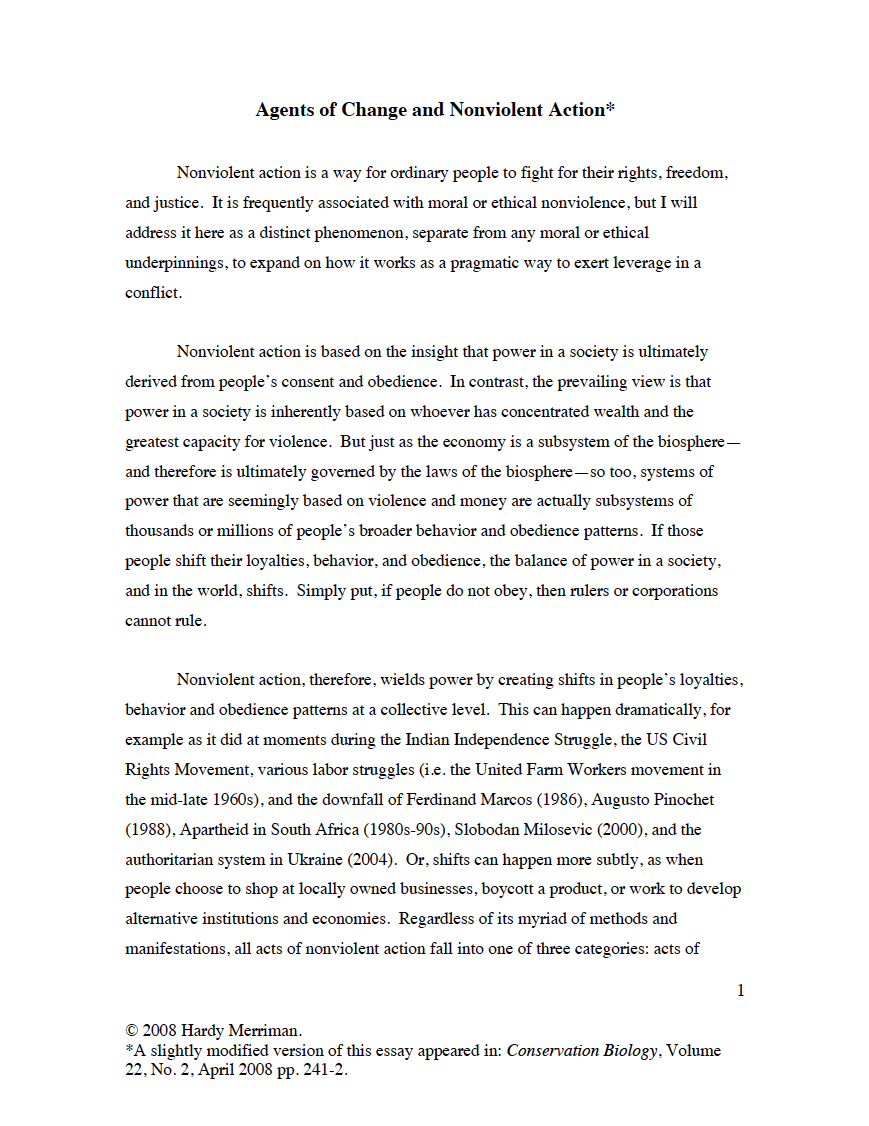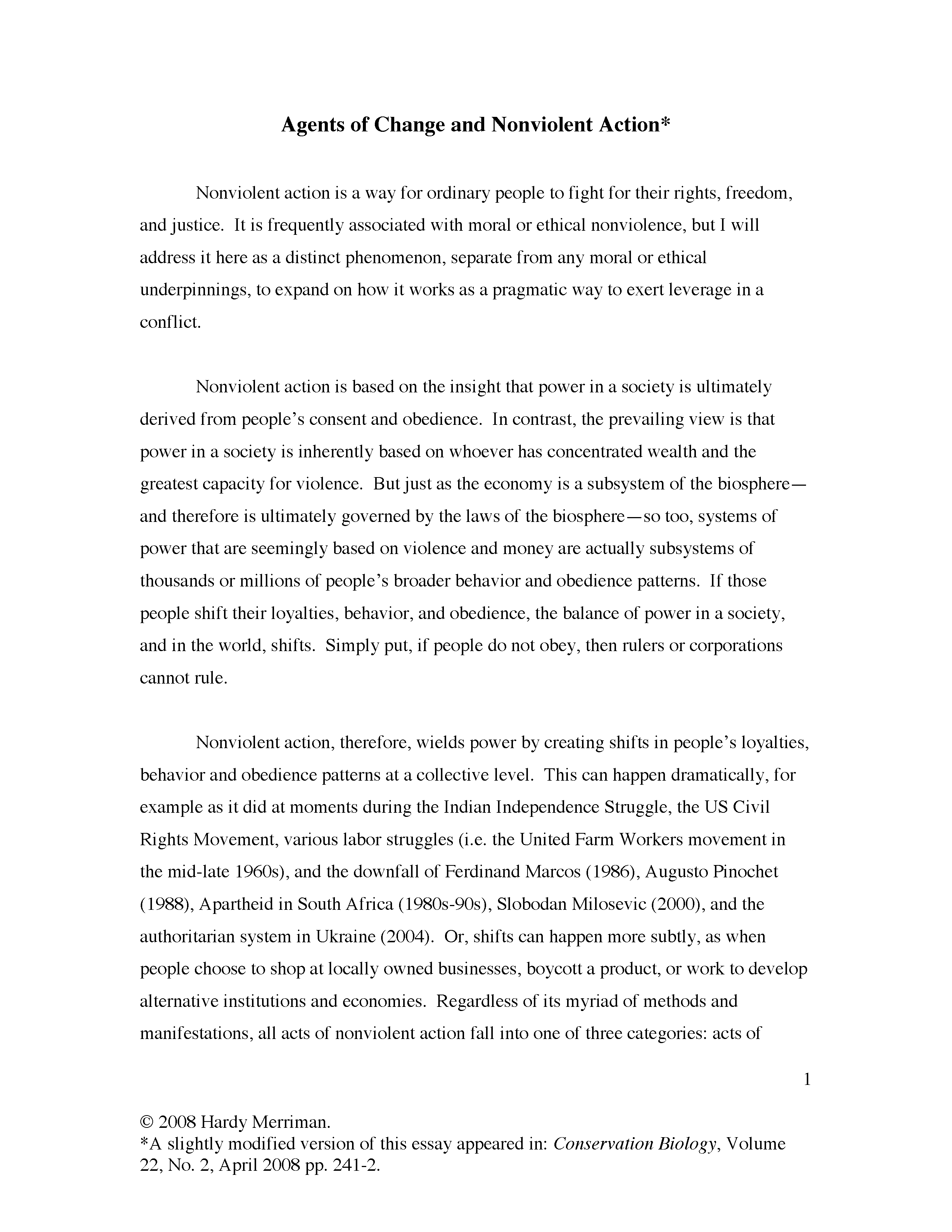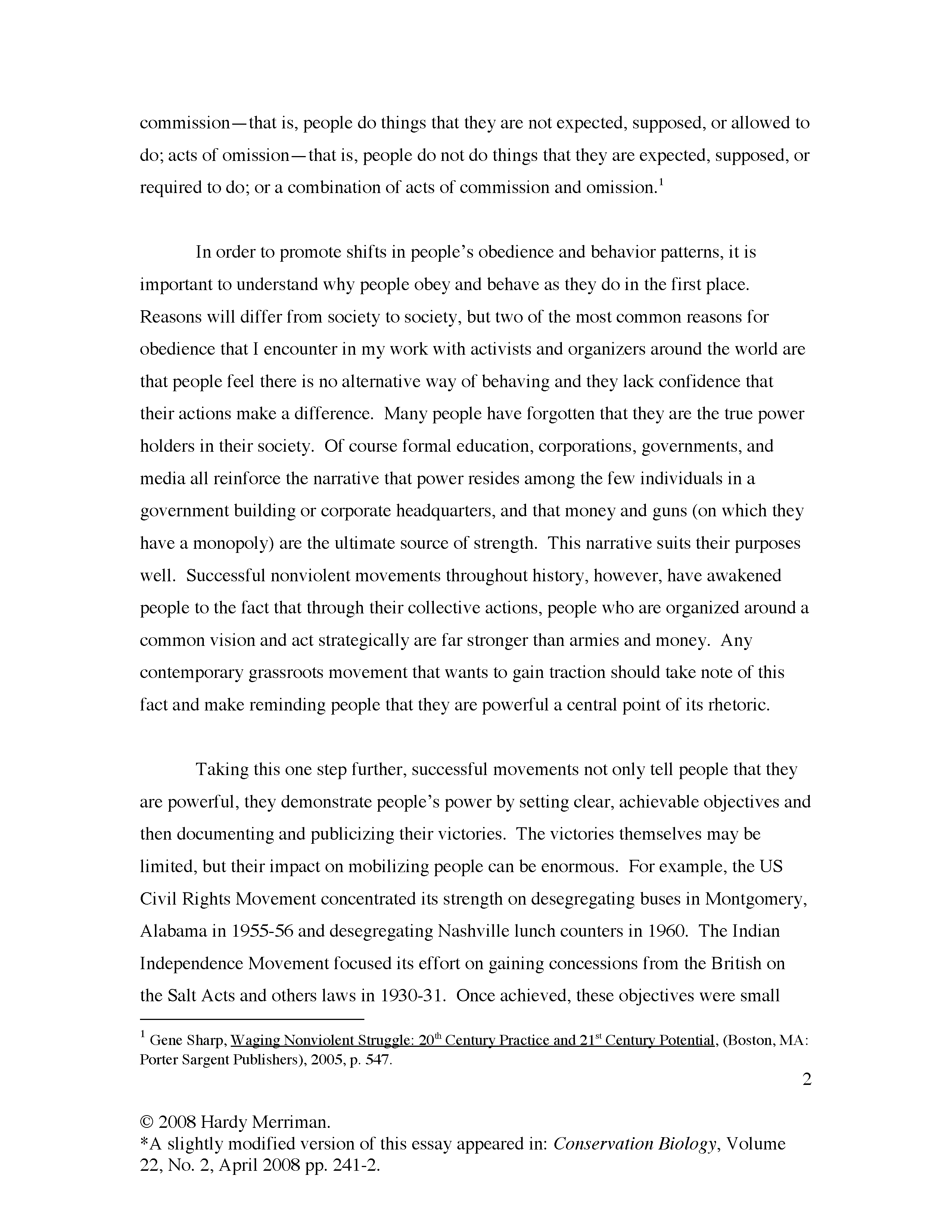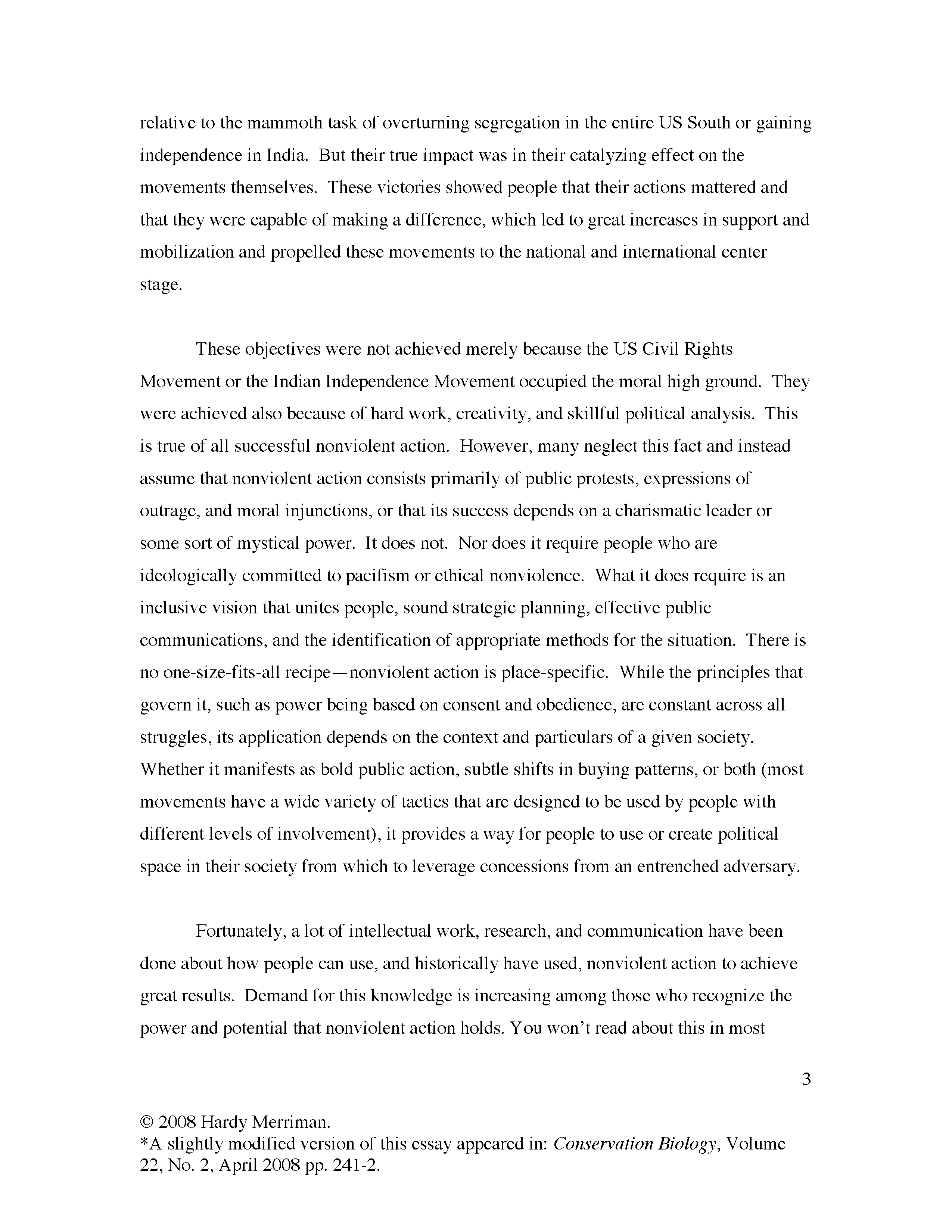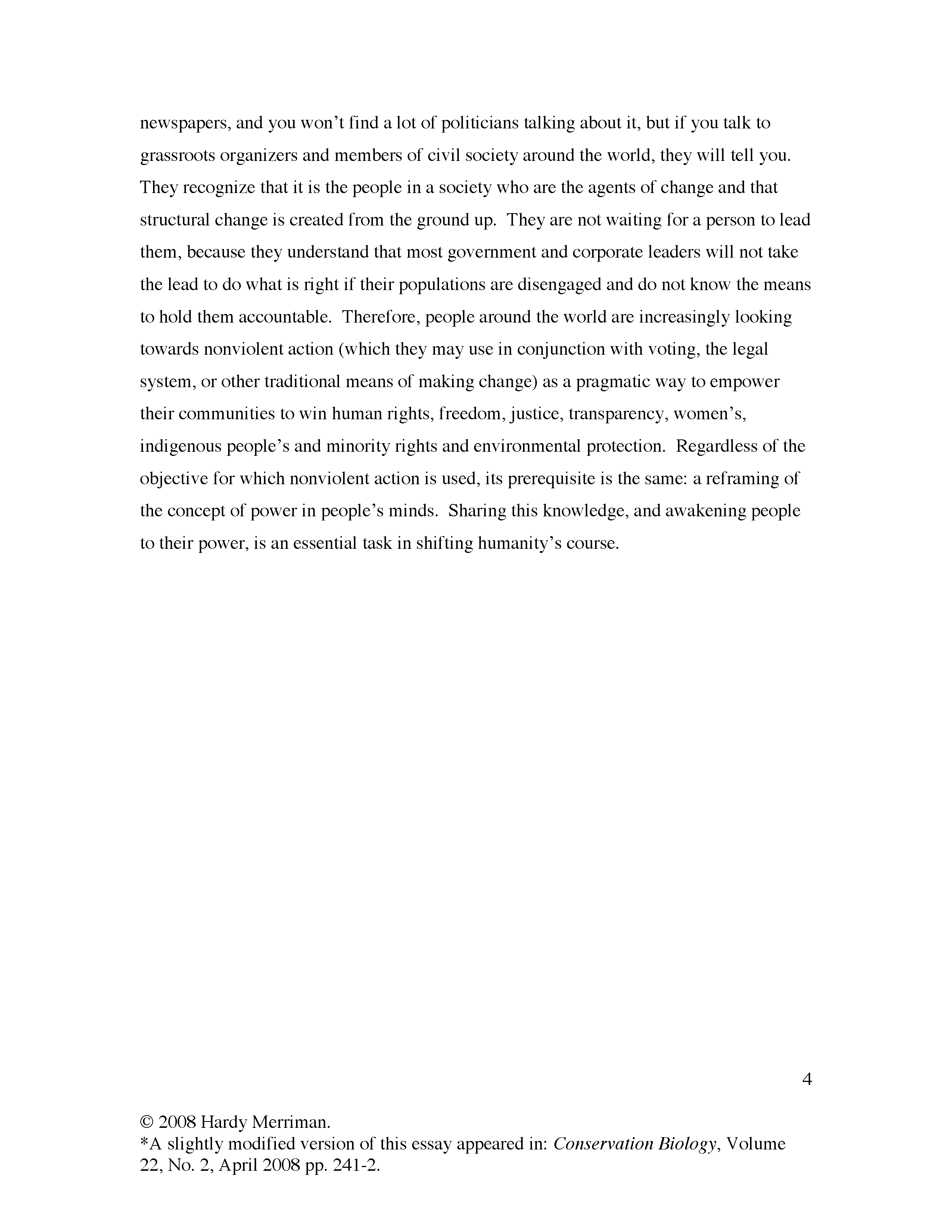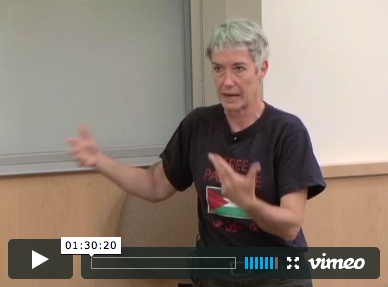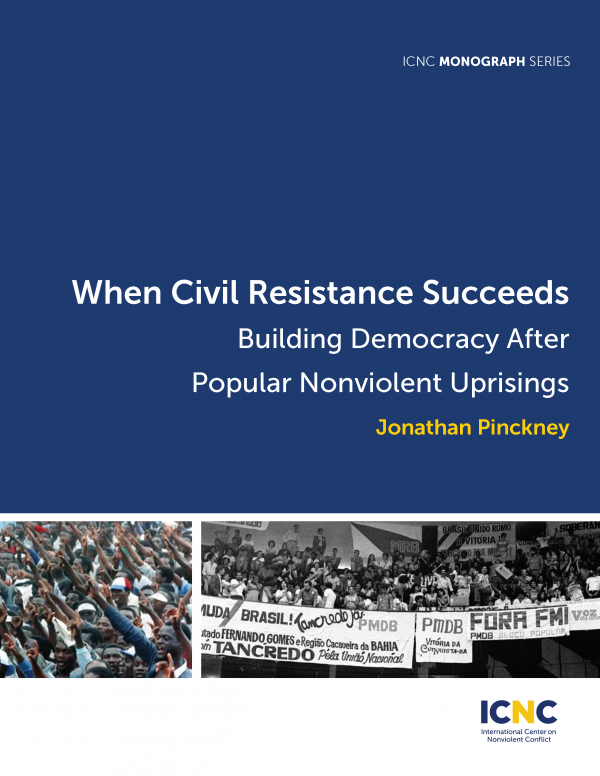Agents of Change and Nonviolent Action
Nonviolent action is a way for ordinary people to fight for their rights, freedom, and justice. It is frequently associated with moral or ethical nonviolence, but in this article Hardy Merriman will define it as a distinct phenomenon, separate from any moral or ethical underpinnings, to expand on how it works as a pragmatic way to exert leverage in a conflict.
Conservation Biology
Volume 22, No. 2 — April 2008
